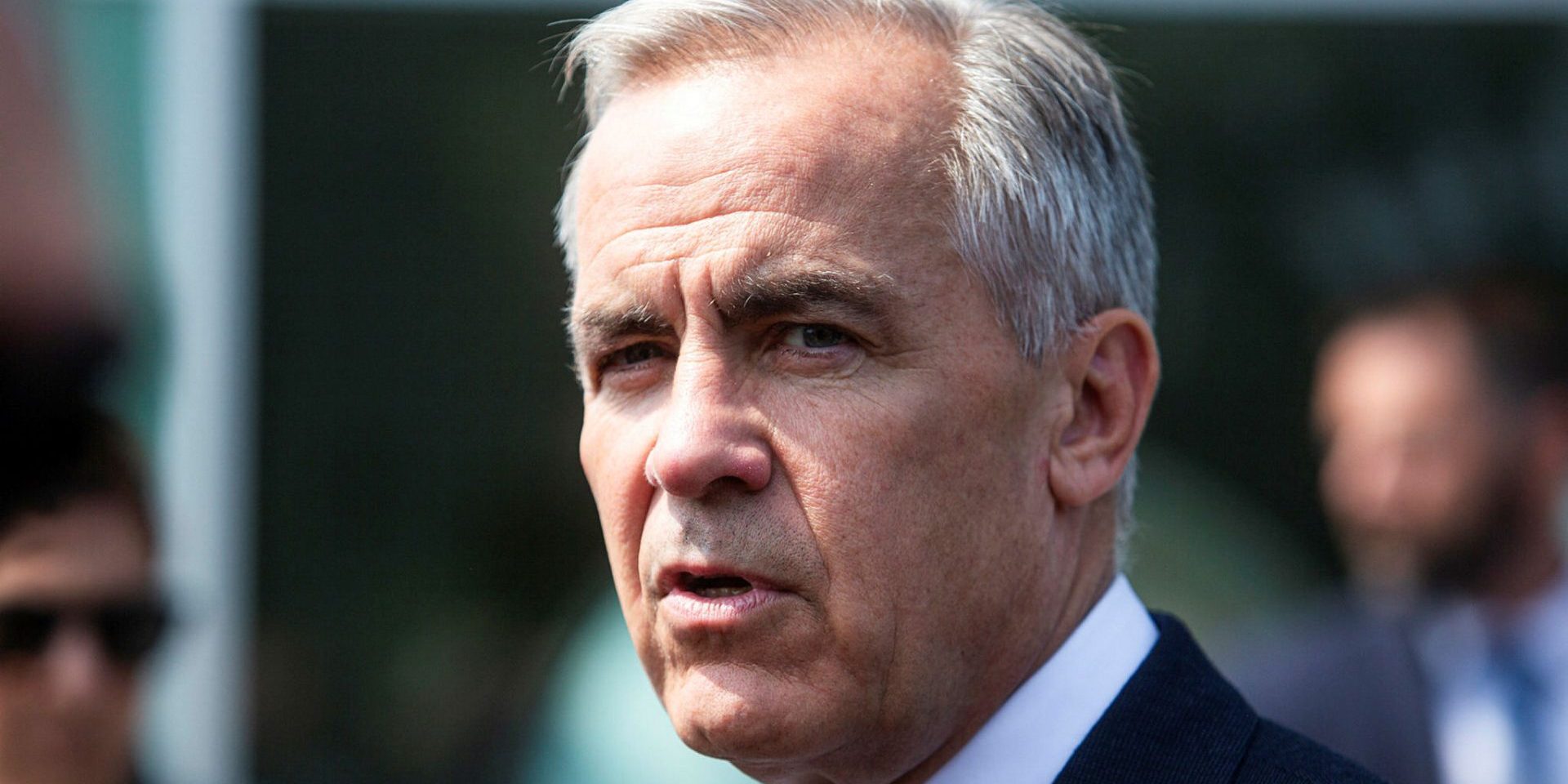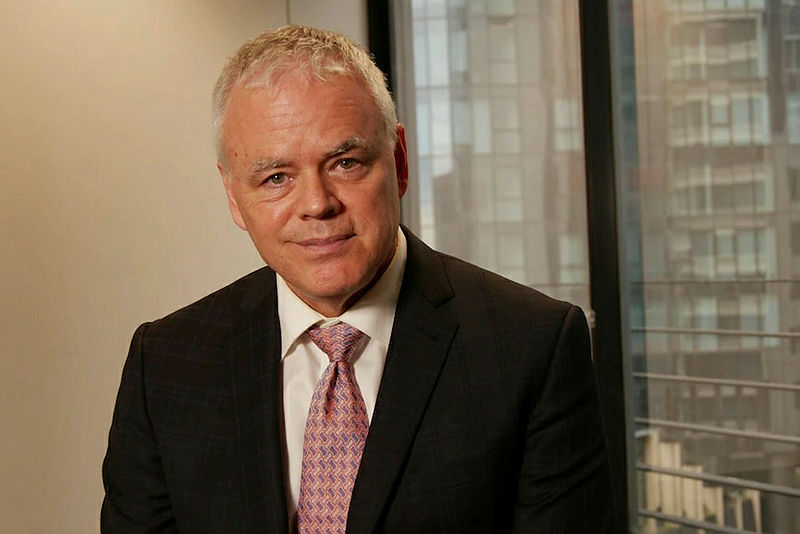Canadian decision to remove counter-tariffs cautiously applauded by advocates, some economists

Economists and advocates are describing Prime Minister Mark Carney’s decision to drop some counter-tariffs as a way to buy time and “potentially a good step forward” as the federal Liberal government attempts to reset trade negotiations with the United States.
Still, Canada must be prepared that any potential trade deal with the United States would be on shaky ground because of President Donald Trump’s changing temperament, according to Jim Stanford, an economist and director of the Centre for Future Work.
“By all means, try to walk back those [U.S.] tariffs. They’re hurting us. But don’t expect that whatever agreement we reach, we can take to the bank,” said Stanford. “We have to have our eyes open—that the negotiating partner here is utterly unreliable and also unconstrained by normal democratic accountability.”
Carney (Nepean, Ont.) announced on Aug. 22 that Canada will remove all tariffs on goods from the U.S. covered by the Canada-United States-Mexico Agreement (CUSMA) by Sept. 1, although existing tariffs will remain on steel, aluminum, and autos.
Following the announcement, Canada-U.S. Trade Minister Dominic LeBlanc (Beauséjour, N.B.) had a “constructive [and] lengthy” meeting with U.S. Commerce Secretary Howard Lutnick in Washington, D.C., on Aug. 26, as reported by CBC News.
Stanford called the decision to drop many of the counter-tariffs “risky,” arguing Canada hasn’t yet seen any “payback” from the U.S. for any earlier concessions. However, he also conceded that it is “hard to second-guess what’s going on behind closed doors in the negotiations.”

“The rationale, obviously, was to try and make a concession to Mr. Trump in hopes of winning some progress on other aspects of the negotiations that they’re involved in. Now whether that pays off remains to be seen,” said Stanford. “Doing things on the border, [increased] military spending, giving up the digital [services] tax—those were all significant concessions by Canada, all motivated by the hope that that could help reach a more lasting deal with Mr. Trump. So far, that strategy has not worked. Every time we give him a concession on something, he suddenly starts to demand something else.”
Stanford argued that the U.S. cannot be relied upon as a trading partner, which is why Canada must “move full speed ahead” to develop a national policy intended to strengthen its industrial capacity and self-reliance.
To facilitate discussions about how Canada may develop a more diversified and self-aligned economy, the Canadian Centre for Policy Alternatives, the Centre for Future Work, and other co-sponsors will host an economic summit in Ottawa on Sept.15. The event will gather about 20 progressive economists and policy experts to discuss a more holistic strategy to “protect ourselves from Trump,” said Stanford.
“It’s bizarre that a major country has a situation where one man can wake up in the morning, get out his Sharpie [marker] and change the tariffs on world trade without going through Congress, without ratifying the legal authority to do that, let alone the sort of normal political constraints,” said Stanford. “By all means, we should try to negotiate … but we can be under no illusions that any kind of deal, whether it’s one of these Sharpie-signed executive orders now, or the full review and renegotiation of CUSMA next year, will be binding as long as … the American president continues to act so unilaterally and without normal constraints.”
As Canada works to be less reliant on the U.S. market, the types of goods that domestic industries and businesses sell abroad will be just as important as the list of countries where those products are sold, Stanford said in a follow-up email on Aug. 25.
“Selling more non-renewable unprocessed resources to, say, Asia instead of America won’t make much difference to our future stability or sovereignty. That’s especially true for fungible globally traded commodities like oil, since a new supply of oil to one market typically offsets a similar flow somewhere else, with little impact on total market demand or price,” he said in the email.
Werner Antweiler, an associate professor and chair in international trade policy at UBC Saunder School of Business, told The Hill Times that he considers the most recent removal of Canada’s counter-tariffs to be a wise move by Carney, in terms of the minimal impact that the change will have on the Canadian economy and the ability to gain leverage in trade negotiations.

“The tariffs don’t exist to permanently change trade,” said Antweiler. “The message, I think, has been heard. We’re pushing back, and we’re not being pushed aside so easily. I think these counter-tariffs have served that initial purpose of showing we’re standing up for our interests and we are willing to fight back.”
Antweiler argued that Canada’s decision to remove some counter-tariffs shows goodwill and helps Canada play for time. The Trump administration will be “waking up very soon” to the economic repercussions of the trade war and those “numbers will show [up] by the end of the year,” he said.
“The numbers will not look so good for Trump anymore, and that will give us a lot more negotiating power,” said Antweiler. “In that sense, Trump is going to be the victim of his own—let me be very blunt— ineptitude, that he doesn’t understand how the economy works. And that’s going to come back to hurt the U.S. economy.”
Corinne Pohlmann, executive vice-president of advocacy for the Canadian Federation of Independent Business (CFIB), told The Hill Times that Canada’s removal of some counter-tariffs is “potentially a good step forward,” adding that about 58 per cent of CFIB member businesses were directly or indirectly impacted by Canadian counter-tariffs.

“The lifting of some of those tariffs … I think, will be welcomed by many of them who were, after six months of trying to deal with this, starting to really feel the pinch of it, and were starting to wonder how they were going to continue to absorb these costs into their businesses,” she said. “We’ll continue to advocate strongly for finding the best deal for Canada. That continues to be, I think, the ultimate goal for everybody, so that we’re not dealing with uncertainty first and foremost, and ideally not that many tariffs.”
When asked if she considers a secure trade deal with the U.S. to be achievable, Pohlmann said that is the million-dollar question.
“Given the circumstances we’ve been through over the last six months … it’s hard to say if you can really rely on what it is that Donald Trump puts out there at any given point in time,” she said. “The most important thing to avoid is a bad deal, but the second thing we need to avoid is this constant insecurity [and] not really knowing when things are going to change again and how to adapt.”
After the announcement that many of Canada’s counter-tariffs would be removed, a press release from the CFIB stated that small firms were previously in favour of Canadian counter-tariffs when the trade war began this winter, but that support has been falling since February.
“Today’s announcement provides some relief going forward; however, businesses have already paid millions of dollars in counter-tariffs. We urge Ottawa to immediately release its tariff revenue to small businesses directly and indirectly affected by trade disruptions and work quickly to resolve small business requests still tied up in the remissions process,” said Pohlmann in the press release.
Catherine Fortin LeFaivre, senior vice-president of international policy and global partnerships for the Canadian Chamber of Commerce, told The Hill Times that, as negotiations continue with the U.S., the more in-sync Ottawa can be with businesses, the better.
“Whatever is considered that will have an impact on different sectors, the more we can be involved in providing insight on that, the better. The caveat, though, being there’s a lot of moving parts, and it’s an ongoing negotiation. There’s a lot of things that are behind closed doors, so we also have to give them room to manoeuvre,” she said. “We also have to be careful to look at the longer-term view of all this, and ultimately, the most important thing for the Canadian economy and Canadian businesses is to go back to a more certain time, and that, hopefully, would be achieved through a renewed CUSMA.”
When asked if she considers a trade deal with the U.S. an achievable goal, Fortin LeFaivre said it is, emphasizing the importance of CUSMA.
“A deal, which is a handshake deal, that’s very vague,” she said. “We have an agreement that’s a lot more robust and advantageous than our partners do in CUSMA. It’s still in play, and that’s what we want to maintain. That still exists. Let’s make sure it stays alive.”
On Aug. 22, the Canadian Chamber of Commerce issued a press release in response to the announced removal of counter-tariffs. In the press release, Fortin LeFaivre said Canada’s focus must remain on securing a durable and predictable arrangement with the U.S. that will give businesses and consumers confidence for years.
“Sectoral tariff impacts around agriculture, steel, aluminum, and copper have borne the brunt of this dispute. Unlike other industries, they have no CUSMA exemption process to ease the pressure. Canada must work closely with these businesses to calibrate our response while pressing for a lasting resolution with the U.S. and other trade partners,” she said in the press release.
Azim Essaji, an associate professor in the Lazaridis School of Business and Economics at Wilfred Laurier University, told The Hill Times that the Carney government had signalled the possible removal of counter-tariffs for weeks leading up to the announcement, and that doing so made sense.
“Ultimately in a trade war, and especially if you’re the smaller country in a trade war, the person you end up hurting when you impose retaliatory tariffs are your consumers. There’s a cost to all of this, and I think it’s only worth putting these measures in if you think that it is actually going to change the situation. And I think it’s pretty clear right now that … regardless of what actions you take, you’re not going to get moved back into the free trade world that we had before,” he said.
jcnockaert@hilltimes.com
The Hill Times






 LICENSING
LICENSING PODCAST
PODCAST ALERTS
ALERTS













